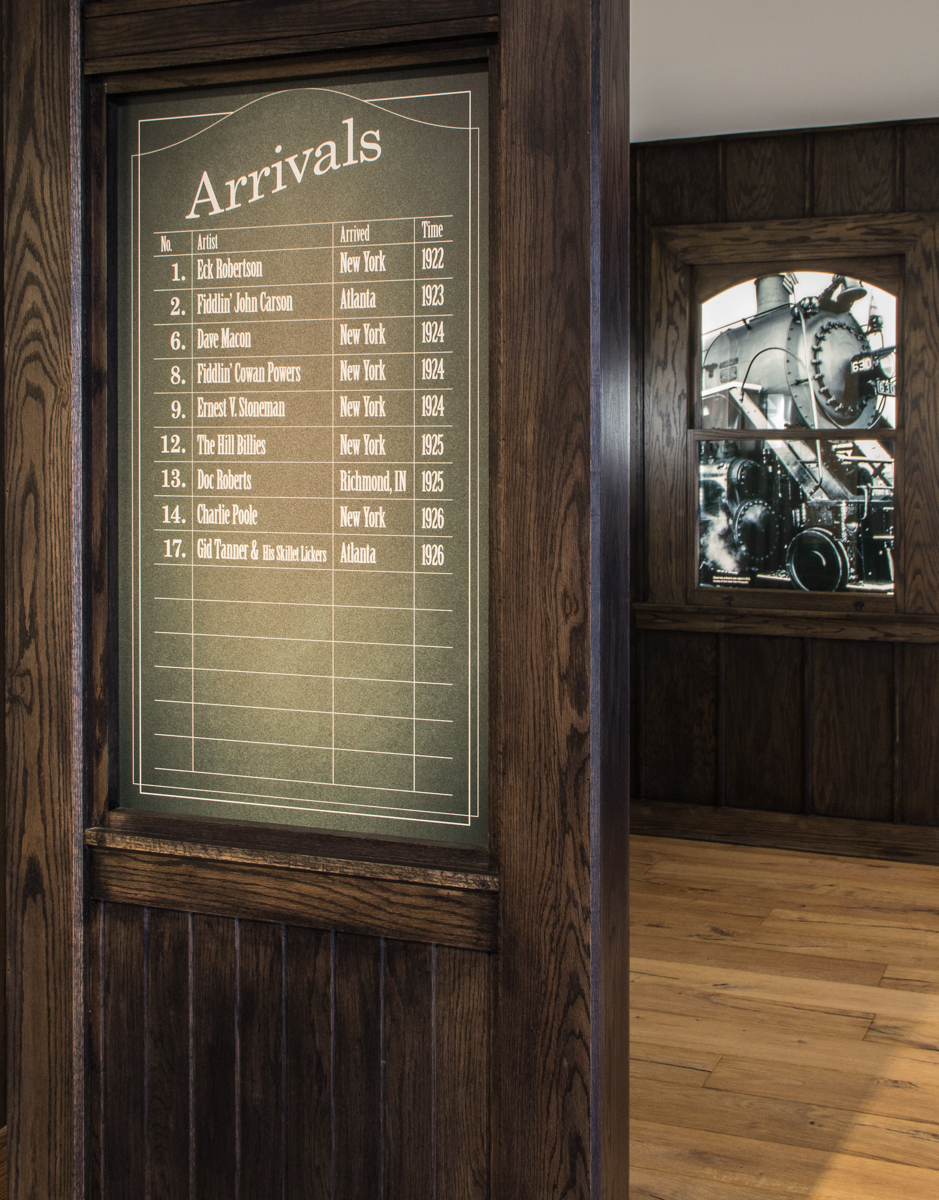Today is International Museum Day, a day that reminds us to reflect on the purpose of museums, to really dig into the idea of why museums matter. After all, can’t we find all the information we need online these days? Can’t we use Google to find answers to the facts we seek, look at images and media that shape histories of the world, and read countless commentaries on these ideas that are written by scholars? Isn’t all the recorded music explored in the museum available online somewhere? Basically, yes. But in a world where the answers are at our fingertips, museums remain important institutions.
Museums bring relevance to our communities and remind us why history matters and how art speaks in numerous voices. Museums are spaces to gather, investigate, collect, interpret, and debate. Yes, debate! Museums are not spaces to find the answers, but to seek, experience, explore, and connect. In fact, the theme for International Museum Day in 2017 is contested histories – and, importantly, museums do not shy away from contested histories; they provide a space for debate and discussion. And at a museum that calls itself The Birthplace of Country Music Museum, you can bet there’s a lot to discuss!
When developing the permanent exhibits for our museum, we focused much attention on the debates and the nuances that are an important part of the complex, multifaceted history of American popular music. And while we like to think of ourselves as experts – content specialists, museum designers, experienced graphic artists, and museum media producers, amongst others – we also consulted the written scholarship, other historians, our colleagues, and our communities.
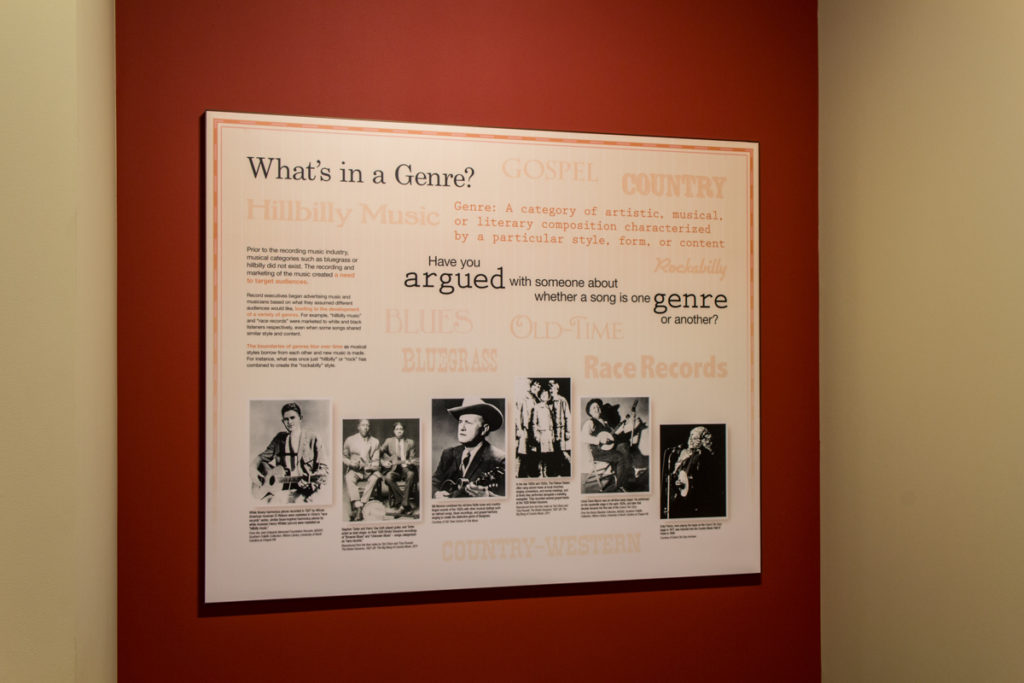
With this many voices, everyone didn’t always agree, and it’s the ongoing, day-to-day interpretive work that is truly invigorating and defines us as an institution. No one wants to go into a museum and read the facts through a dominant narrative written by scholars. Even scholars don’t want this, as they will continue to debate and discuss these histories from their perspectives and training. (And yes, we scholars think that’s fun!) Everyday visitors also like to understand the shades of the story, debate the facts, and marvel at how a moment in musical history that was not significant enough at the time for Mother Maybelle to even consider keeping the guitar she used to record there could then influence so many of the musicians who followed.
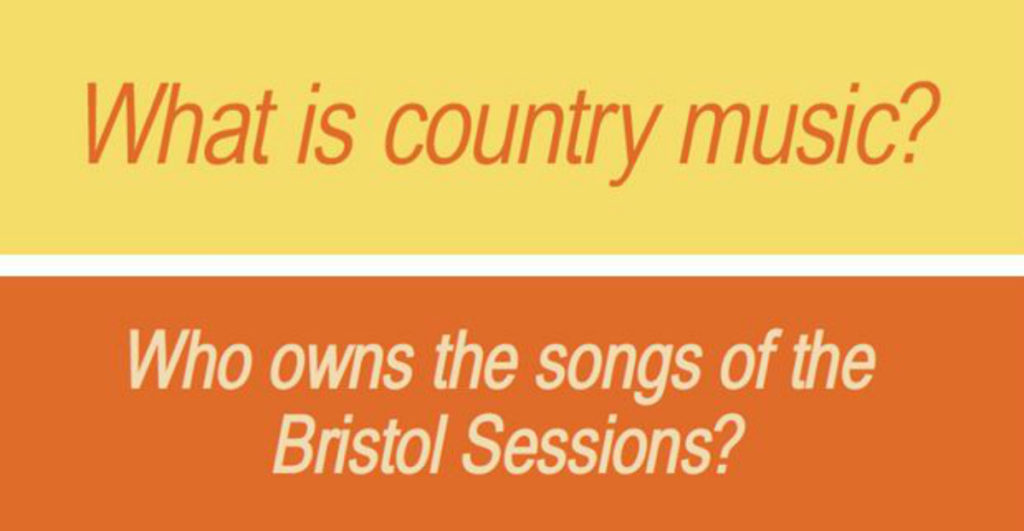
In our exhibit design, the museum content team tried to raise more questions than we answered. Did Alfred Karnes really play a harp guitar on his Bristol Sessions recordings, or did he just own one at the time? Would these recordings have been as successful without the new microphone technology, especially given the quick popularity of the songs of Jimmie Rodgers and The Carter Family? How long would the hillbilly music industry have been delayed if Fiddlin’ John Carson hadn’t recorded a few years prior to the Bristol Sessions in Atlanta? Would the Stonemans have been more successful if Ernest “Pop” Stoneman claimed composition ownership of the songs he recorded and not attributed the hymnbooks where he learned them?
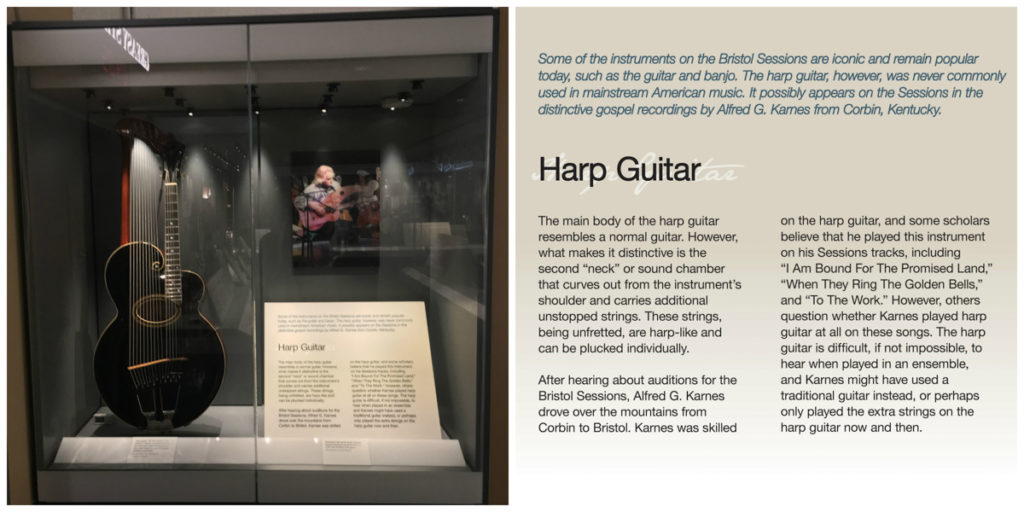
And where is the Birthplace of Country Music? The 1927 Bristol Sessions provide a significant anchor and the museum explores this impact, but we also dig into earlier arrivals into the hillbilly music industry, such as Atlanta and New York. Should Atlanta be considered the birthplace? Or somewhere else? What about the Stonemans’ home in Monarat, Virginia? Or the Carter’s home place in Maces Springs, Virginia? Our earliest conversations about a museum in Bristol acknowledged the entire region as the birthplace. And hillbilly music/early country/traditional Southern Appalachian music began long before it was recorded, right?!?
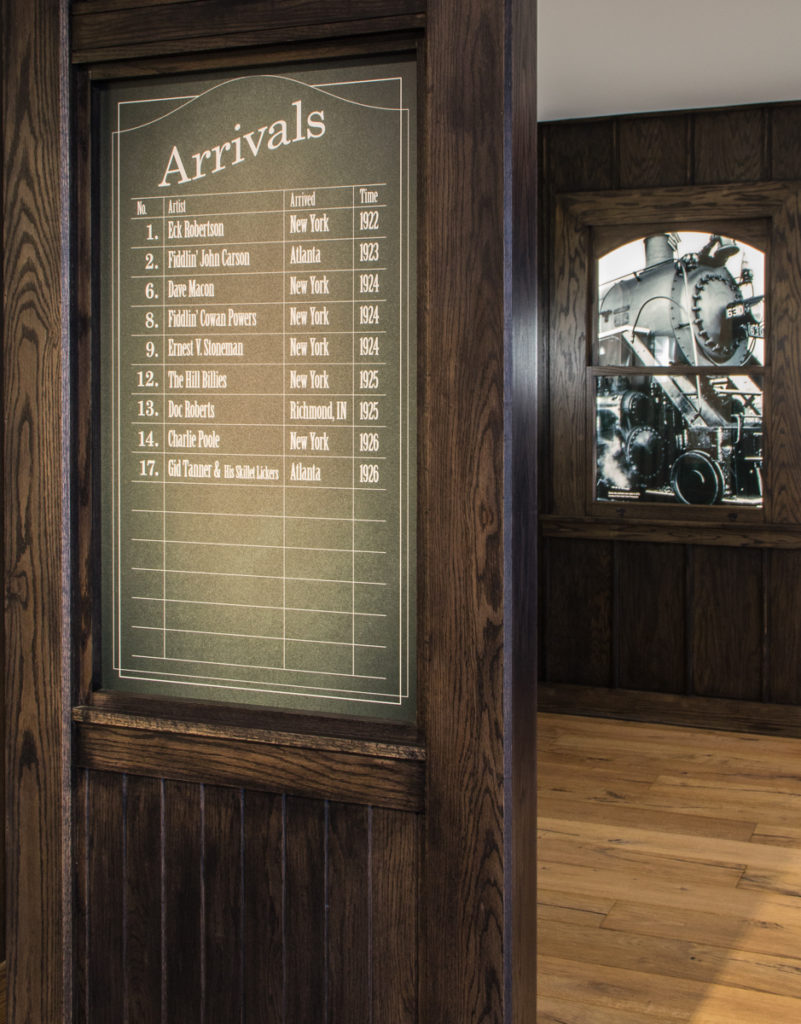
Can we also consider the British Isles as the Birthplace of Country Music? Many of the ballads that became the songs of early traditional music came from there, after all. And, with the roots of the banjo, shouldn’t we also consider West Africa? I’d say sure, it’s all part of an amazing and intricate history, and the Birthplace of Country Music Museum exhibits acknowledge the complex interaction of musical styles and social history that fostered the vernacular musical styles that ended up being recorded in Bristol.
It’s in these debates that museums offer relevance and dialogue. Where we can learn something new as we listen deeply and engage with history. Where we also discover something about ourselves when we attend live programs that celebrate community music-making. And where we can pass along inquisitiveness, appreciation, and a deeper understanding of place to our kids. It’s why museum staff work long hours even after a museum opens, and why the work going forward is just as important as the foundation we sit on.

Jessica Turner is the Director of the Birthplace of Country Music Museum. She reminds us that this is a blog post, so it’s a mere 800 words. For further reading, turn to Bill Malone, Barry Mazor, or Charles Wolfe and Ted Olson, amongst others… Just keep digging and debating!


